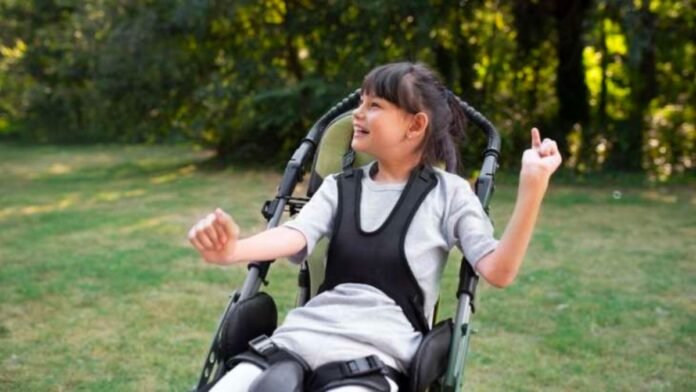Cerebral palsy (CP), a common pediatric congenital condition, is often misunderstood. Due to these myths, CP families often experience excessive stress. Cerebral palsy myths are debunked by Apollo Spectra Mumbai Internal Medicine Expert Dr. Chhya Vaja.
Children with cerebral palsy (CP) experience movement and posture issues. Most brain injuries occur during or after pregnancy. Palsy affects muscle control, while cerebral signifies the brain. This complex illness affects children and adults differently and to variable degrees. CP is permanent, but with proper management, people with it can live healthy, normal lives. However, this illness is still little known. Other myths surround this illness.
some of the cerebral palsy myths:
Cerebral palsy causes intellectual disability.
Fact: Cerebral palsy affects movement and posture, and few have intellectual disabilities. Intellectual disability ranges from minor to severe.
Cerebral palsy prevents verbal communication.
Only some cerebral palsy patients cannot speak. Despite this, they can converse well. Cerebral palsy patients can express their needs and desires via book illustrations or eye-gaze control technologies.
People with cerebral palsy live shorter lives.
Fact: Most cerebral palsy patients are healthy and live as long as the normal population.
Cerebral palsy children live poorly.
Fact: Most cerebral palsy youngsters are healthy and happy.
A cerebral palsy patient cannot have children.
There is no evidence that cerebral palsy impacts fertility. Since it is not genetic, a woman with cerebral palsy has the same chance of having a kid with the condition as anyone else.
Gradually, cerebral palsy worsens.
A frequent misunderstanding is that cerebral palsy worsens with age. Although the illness is permanent, its severity does not worsen over time. However, like everyone else, cerebral palsy patients may develop age-related symptoms like muscle rigidity and other difficulties.
Family-based cerebral palsy.
Fact: No specific genetic condition has been linked to CP. Thus, CP is not inherited from parents with the condition, and one child with CP does not mean the others will too.
Conclusion:-
A common pediatric congenital illness, cerebral palsy (CP) affects movement and posture and is commonly caused by brain injury in gestation or shortly after delivery. This complex illness can affect children and adults to varied degrees. CP and its myths are still poorly understood.
Myths include that CP patients are mentally impaired and cannot speak. Few have this ailment. Most CP children and adults live healthily and enjoy an excellent quality of life.
CP is a common pediatric congenital condition, but many people have misconceptions about it. To help families cope with CP diagnosis and treatment, awareness and proper information are essential.



